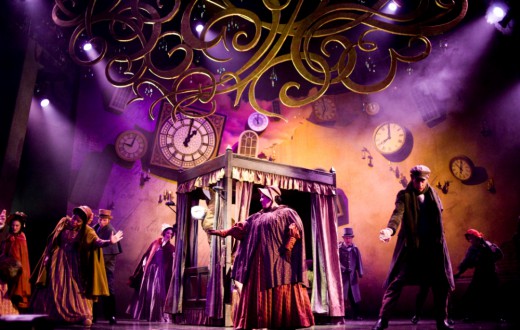Children’s theater is a vibrant part of the performing arts world, focusing on creating theatrical experiences specifically designed for young audiences. It demands a unique set of skills from actors, including the ability to engage, entertain, and inspire children through interactive performances, storytelling, and physical comedy. There’s a magical world of children’s theater which is significant in the development of young minds, and specialized techniques are employed by actors to create memorable experiences for their young spectators.
The Importance of Children’s Theater
Children’s theater is extremely important for the emotional and artistic growth of young individuals. It offers a secure and imaginative environment where kids can develop their critical thinking, empathy, and creativity. Through attending live shows, children are introduced to diverse artistic forms, characters, and stories which expand their outlooks and enrich their appreciation of different cultures.
Life skills such as active listening, social interaction, and emotional intelligence are also fostered by children’s theater. By engaging in interactive performances, young viewers acquire an appreciation for teamwork, collaboration, and consideration for others. It’s worth noting that some children in the audience may aspire to become actors, placing them in a world where adults with diverse personalities reign supreme. Thus, respect is crucial.
A brief mention regarding respect — teaching children to value respect enables them to handle their interactions with others and the world. Recognizing the significance of attentive listening, respecting diverse viewpoints, and exhibiting good etiquette helps children develop wholesome relationships, promote inclusivity, and make constructive contributions to their communities. By fostering a respectful environment early on, we provide children with the necessary skills to become empathetic and accountable individuals who can create a favorable influence on society. If a child is going to be working in an adult world, respect should be a number one priority.
Why Would an Actor Want to Act in Children’s Theater?
Performing in children’s theater allows actors to make a positive impact on young lives, develop versatile skills, experience joy and fulfillment, cultivate creativity, enhance communication and adaptability, contribute to accessibility, and facilitate personal growth and development. These factors make children’s theater an appealing and rewarding choice for many actors.
Interactive Performances
At the heart of children’s theater are interactive performances that invite young spectators to become active participants rather than passive observers. Actors use various techniques to encourage audience engagement, such as direct address, call-and-response, and interactive games. These interactions create a sense of connection between the actors and children, fostering a dynamic and immersive theatrical experience.
For more on Immersive Theater, enjoy this DirectSubmit NYCastings article titled Step Into the Story: The Thrilling World of Immersive Theater.
Storytelling and Narrative
Actors use captivating narratives that resonate with the imaginations of young minds. They weave tales of adventure, friendship, self-discovery, and resilience, often incorporating moral lessons and values into their stories. By presenting relatable and engaging narratives, actors spark children’s curiosity, stimulate their imaginations, and inspire them to explore the world of possibilities beyond the stage.
Physical Comedy and Expressive Performances
Children’s theater relies heavily on physical comedy and exaggerated expressions to elicit laughter and evoke emotions. Actors employ a wide range of physical techniques, including slapstick comedy, clowning, puppetry, and exaggerated gestures, to create moments of hilarity and wonder. These physical performances captivate young audiences, as they respond with infectious laughter and uninhibited joy.
Adaptability and Flexibility
Acting for young audiences demands adaptability and flexibility from actors. Children have diverse attention spans, and their engagement levels may vary throughout a performance. Skilled actors in children’s theater are attuned to these nuances and are adept at adjusting their performances to cater to the needs of their young spectators. They maintain high energy levels, incorporate audience participation, and possess the ability to seamlessly transition between different characters and situations to sustain the children’s interest and involvement.
Educational and Social Impact
The impact of children’s theater on education is significant as it boosts literacy, emotional intelligence, and social awareness. Through live performances, children develop an understanding and admiration for literature, language, and the art of storytelling. They also gain knowledge about diverse cultures, historical events, and social concerns, which helps them to be more understanding.
Important issues like bullying, friendship, and environmental conservation can be tackled by children’s theater. By portraying these subjects in a way that connects with young viewers, performers can motivate them to ponder their own lives and take constructive actions.
Collaboration and Teamwork
Collaboration is a key aspect of an actor’s work, as they team up with directors, playwrights, designers, and other artists to craft visually stunning sets, costumes, and props that elevate the overall production. Additionally, actors work together closely to establish a seamless ensemble, supporting one another’s performances and ensuring a cohesive and captivating storyline for young audiences.
The impact of children’s theater on young minds is profound. It can shape a child’s creativity and worldview for years to come, providing both laughter and valuable lessons. Whether it’s a musical, play, or puppet show, children’s theater offers an excellent opportunity for exploration and fun. As responsible adults, we should encourage and support children’s participation in theater programs to foster their creativity and develop important life skills. Let’s celebrate the joy of children’s theater and its ability to inspire future generations.







